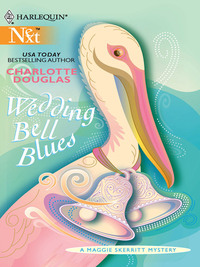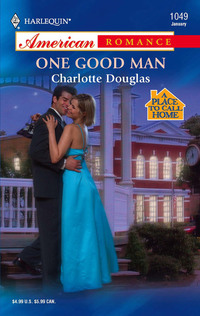
Полная версия
Holidays Are Murder
“So you’re withdrawing the invitation?” Bill asked.
“No, I’m just warning you that dinner with Mother will be an ordeal. It always is. So you might want to reconsider.”
He reached across the table and grasped my hand. “Maybe just once you ought to tell your mother to take her hoity-toity attitude and stick it up her—”
“Bill!”
“You’ve heard the word ass before,” he said with a rare flash of temper. “You’ve even used it a few times yourself.”
“But never in relation to my mother. Mother wouldn’t be caught dead with a common ass. She has only a very sophisticated derriere.” I teased to defuse his irritation.
“You’ve got to stop tiptoeing around her.”
“She and Caroline are all the family I have.”
Pain flashed through his eyes, and I wished I could take back my words. Bill had even less family than I did.
He took a deep breath and exhaled. “Maybe it’s time for a family of your own. We could be a family, you and I.”
I was on the verge of choking up over his proposal when my beeper sounded. “I have to call the station.”
“I’m giving you a cell phone for Christmas,” he promised with a scowl.
“I’d either lose it or forget to charge it, so save your money.” I hurried from the table to the pay phone in the lobby.
I was gone only a couple of minutes before I returned and cast a longing look at my unfinished burger. “Gotta go,” I said. “Another break-in.”
“You’re dead on your feet,” Bill said. “At least let me drive.”
For a few seconds I luxuriated in the unaccustomed comfort of having someone fuss over me. Then duty kicked in.
“Okay, but let’s roll. Shelton was already frothing at the mouth over last night’s burglary. I don’t want him putting me on report for slow response.”
CHAPTER 2
Last night’s burglar may have been stupid, but if he was hoping to make the Pelican Bay Police Department look bad, tonight’s repeat break-in had definitely accomplished that goal. Bill parked his car in the same space I’d used the night before. I thanked him for the ride and left the car in a hurry. I didn’t know whether to feel relieved or disappointed that our discussion about families had been interrupted. Relieved, I decided. Being with Bill when he was relaxed and laid-back was easy. When the serious stuff kicked in, I was out of my element.
It was just after 8:00 p.m., and light poured from the windows of Mama Mia’s, doing a booming take-out business, judging by the activity visible through the plate glass and the number of drivers scurrying from the restaurant with insulated bags. Monday night football apparently created a huge appetite for pizza.
My attention this evening, however, wasn’t on Mama Mia’s but Bloomberg’s Jewelers next door. Steve Johnson let me in the front entrance.
“The owner’s on his way,” Johnson said. “It was a smash-and-grab.”
Shards of glass from several display cases littered the narrow aisle. Bloomberg’s wasn’t a large store, but its small space packed a hefty inventory of high-end goods. Even my very picky mother was a frequent shopper here. Looking at the empty display cases, I hoped Bloomberg’s insurance was adequate. The man had lost a mint.
“We have to quit meeting like this, Maggie.” Adler appeared at my elbow and handed me a large foam cup of coffee. “Malcolm sent you this. Got it at Mama Mia’s.”
I took the steaming infusion of caffeine with gratitude and glanced toward the parking lot where Bill had returned to his car and was now reading a magazine in the glow of the dome light. It was going to be another long night.
Bloomberg arrived immediately after Adler. He entered the shop and, for a moment, I feared the little man would burst into tears.
“I’m Detective Skerritt,” I said. “We spoke on the phone this morning.”
A frail, nondescript man with kind brown eyes and graying hair, Bloomberg wrung his hands. “You warned me, Detective. And I called the contractor. He’s scheduled tomorrow morning to secure the ducts on the roof. Too late now.”
Bloomberg seemed to shrink into his shapeless gray sweater as he shook his head and surveyed the damage. Adler moved toward the rear of the shop and entered a hallway.
“Can you tell me what’s missing?” I asked Bloomberg.
“Someone knew what he was doing,” the jeweler said. “He took only the most expensive items.”
“Didn’t have much time, though,” Johnson chimed in. “I was in the neighborhood and was here within minutes of the alarm sounding.”
Adler returned to the front room. “Entered through the roof, just like last night.”
“Do you have motion detectors?” I asked Bloomberg.
The elderly man shook his head. “Only alarms on the doors and display windows.”
“Were the interior lights on when you arrived?” I asked Johnson.
He shook his head. “I hit the lights when I got here so I could see to turn off the alarm.”
“Then our burglar couldn’t be seen from the street,” I said, “and he didn’t set off the alarm until he left. He had all the time in the world to pick and choose what he wanted.”
The CSU techs arrived. “Déjà vu all over again,” one commented before starting to work.
“I’ll need your surveillance tapes,” I told Bloomberg.
“From how far back?” he asked.
“How far back do you keep them?”
He looked chagrined. “My wife makes fun of me. Says I’m obsessive/compulsive. It takes a lot of tapes, but I keep them for a month. Just in case.”
“In case?”
His lined cheeks reddened with embarrassment. “I’m an old man. Sometimes I don’t notice things like I should. If something was missing, like from a shop-lifter, it could be days before I’d notice.” His eyes brightened. “But if I have the tapes, I can at least go back and see what happened.”
“Let me have them all.”
I’d begin with the past few hours. I was hopeful surveillance would reveal a good view of our burglar. Even if masked, if he was a habitual offender, I might recognize him. If not, I’d work my way backward through the remaining videos. If someone had cased the store in the past month, he probably wouldn’t have bothered to hide his face and I’d have him on tape.
Several hours later I wasn’t feeling as confident. I’d returned to the station to view the most recent surveillance video. Even in the dim light from the streetlights outside, it had captured perfect images of the burglar, who had ditched Bill Clinton for a ski mask. After the pizzeria closed, Maria Ridoletti stopped by the station to confirm our perp. Standing in front of the monitor, she watched the tape and shook her head.
“That’s not him.”
“You mean, it’s not Clinton?” I suspected that the ski mask had thrown her.
She crossed her arms over her skinny chest and tapped her foot impatiently. “It’s a different guy altogether. He’s almost a foot taller than the one who robbed me.”
Those were words I didn’t want to hear. “You’re sure? After all, you were sitting down.”
“And the guy in the Clinton mask was almost eye-to-eye with me. Nope, that’s definitely not the one who robbed me.” Her scathing look spoke volumes. “Looks like you’ve got two robbers to catch now.”
The next morning the insistent ringing of the telephone awakened me. A glance at my bedside clock indicated the time was a few minutes past seven. I’d had less than four hours’ sleep in the past two days, and I wanted nothing more than to let the answering machine pick up while I dived under the covers until the alarm sounded at seven-thirty. But, recalling the dynamic duo of thieves still at large, I fumbled for the phone beside my bed and braced to hear Darcy announcing another break-in.
“Good morning, dear.” My mother’s refined voice, buoyant with irritating cheerfulness, resonated in my ear. “I was hoping I’d find you at home.”
That one simple statement carried a truckload of disapproval, her indirect snipe at the unpredictable hours of my job.
“What’s up?” I asked. Mother never called simply to chat or pass the time of day. She communicated only to issue a summons or an edict. This morning was no exception.
“I’m calling about Thanksgiving dinner. You are coming, aren’t you?”
“I certainly intend to.” I didn’t want to get into the possibility, of which Mother was well aware but chose to ignore, that work might intervene.
“We’ll gather at five for cocktails. Dinner at six.”
With partial consciousness came the memory of my conversation with Bill at the restaurant the previous night. “If it’s all right, I’d like to bring a guest.”
“A guest?” Her voice crackled with surprise.
“Bill Malcolm.”
“Oh.”
“Is that a problem?”
“Of course not.” Her tone contradicted her words. “But, really, Margaret, what do you know about this man?”
“This man was my partner for seven years and he’s been my friend for over twenty.” The fact that in all that time he’d never met my family said a lot about my shaky relationship with them.
“I’m aware of that, dear,” she said with a hint of exasperation, “but what do you know about him?”
“I know that he’s good and decent, but if you’d rather I came alone—”
“I’m sure Mr. Malcolm is a very nice man, but what do you know about his family?” For Mother, with people, as with art and antiques, provenance was all.
“Most of them are dead,” I said.
“Don’t be obtuse, Margaret. You know exactly what I’m asking. Who were they?”
Decent, unpretentious, hardworking people, with whom my elitist mother had absolutely nothing in common. “His father was a citrus grower in Plant City. He’s eighty-five, suffers from Alzheimer’s, and is in an assisted-living facility in Tampa.”
“He was a farmer?”
“You could say that.” Contrariness kept me silent on the fact that Bill’s father’s orange groves were several thousand acres of prime real estate, worth millions if sold for development. A sufficient amount of wealth covered a multitude of sins in Mother’s book, but I wasn’t about to pander to her prejudices.
“And his son lives in Pelican Bay?” She was sounding more dubious by the minute.
“At the marina. On his boat.”
“Mr. Malcolm lives on a boat?” Horror laced her voice. “Like a transient?”
Even in my sleep-deprived state, I experienced a guilty thrill at Mother’s disapproval. I’d learned long ago I could never please her, so sometimes I took perverse pleasure in pushing her buttons instead. Especially since I was still smarting from her dismissive attitude a few weeks ago at the yacht club when I’d saved her from an armed teenager intent on robbery. Instead of thanking me, she’d criticized my language. Why I, at forty-eight, still longed for my mother’s approval, was one of the mysteries of the universe.
“Because he does live on a boat, I’m sure he’d enjoy having Thanksgiving dinner in a real home,” I lied, knowing Bill could whip up an elegant holiday meal in his small galley kitchen that would put Mother’s expensive caterers to shame.
“Your friends are always welcome at my house, Margaret,” Mother insisted, but her tone lacked conviction. “I’ll be happy to have Mr. Malcolm join us for Thanksgiving. But please, remind him that we dress for dinner.”
I stifled the irrational image of Mother, my perfect older sister Caroline and her stuffy husband, Hunt, sitting naked around Mother’s antique dining table, and I couldn’t resist baiting her. “Clothes are always helpful, especially when the weather’s chilly.”
Mother’s sigh of exasperation vibrated loudly through the handset. “You know what I mean, Margaret. At least, I hope you haven’t forgotten all the social niceties.”
Not as long as I had Mother as a constant reminder. “Thanks, Mother. I’ll see you Thursday.”
I climbed out of bed and gazed through the sliding-glass doors of my second-floor bedroom at St. Joseph Sound and the Intracoastal Waterway that separated the city from Pelican Beach. The waters, smooth as glass, reflected a towering bank of cumulus clouds, rose-tipped by the sunrise, and mirrored the shimmering lavender-and-pink striations cast by the early-morning sky.
For a moment I considered what life might be like without my job. With the tidy sum vested in my pension and a small income from the trust Daddy had left me, I wouldn’t have to work. If I retired, I could enjoy a cup of coffee and the morning paper on my balcony while I watched the charter boats heading into the Gulf with their boatloads of tourists.
And then what would I do the rest of the day?
With a month’s worth of Bloomberg’s surveillance video waiting at the station, I headed for the shower.
Adler was already at the station when I arrived.
“Did you go home last night?” I asked.
Adler had a pretty young wife, Sharon, and an adorable year-old daughter, Jessica, and I worried that the extra hours he logged were negatively affecting his family. I didn’t want him to end up as Bill had, divorced and unable to watch his daughter growing up.
“Yeah, I left right after you.” Adler flushed to the tips of his ears. “I’m logging some personal time today. Came in early to let you know before I take off.”
He was having trouble looking me in the eye. I shut the door to the CID cubicle that some called an office and faced him. “What’s up?”
He lowered his voice. “An interview with the Clearwater P.D. I can’t wait for the council to make up its mind about whether to keep our department. For my family’s sake, I have to make sure I have a job.”
Although he was still green, I respected Adler more than any of my partners since Bill Malcolm. With his sharp mind and humble demeanor, he had the makings of a great detective. He also had the rare gift of bringing out my maternal instincts, and I would sorely miss him if he left.
I spent the rest of the day watching surveillance tapes until my eyes crossed. During the past few weeks, several people had done some serious browsing in Bloomberg’s without making any purchases, but no one fit the description of either of the perps. In desperation, I punched the number of Mick Rafferty, head of the sheriff’s crime lab, into my phone.
“Mick,” I said when he answered. “Do you have the latest face recognition software?”
“You know I do, Maggie, me darlin’.” Mick was quintessential Boston Irish, young and cocky with devilish blue eyes, wall-to-wall freckles and an encyclopedic mind like a steel trap. “Haven’t you seen the ACLU goon squad screaming invasion of privacy for the past few months on the evening news?”
I wasn’t about to admit how long it had been since I’d watched a newscast, evening or otherwise. “Does the software work?”
“What have you got?”
I explained about the surveillance tapes and my hope that Mick could run a few of the faces through the system in hopes of coming up with a match.
“Make notes of the footage you want me to check and send me the videos,” he said. “But I have to warn you, I have three major homicide cases that have priority. It could be a while before I can get to your tapes.”
“I understand, Mick,” I said. “But I’m flying blind here, and I’m afraid this pair will hit again. Next time somebody might get hurt.”
“You’ll get the bastards, Maggie. You always do.”
I marked the tapes that showed suspicious customers, bundled the videos in a bag and carried them to my car to transport to the sheriff’s crime lab in midcounty.
Thanksgiving morning dawned warm, clear and bright, the kind of November day that had the folks down at the chamber of commerce—and tourists who’d shelled out big bucks for their holiday vacations—exchanging high fives. As I drove north along Edgewater Drive into town, joggers in colorful spandex were spaced along the bayside path like beads on a string, the brown pelicans that gave the town its name dived for fish in the emerald-green waters, and the cloudless sky promised a balmy, sunny day.
After I passed the marina, I turned into the parking lot of Sophia’s, a four-star restaurant and hotel, built like a Venetian palazzo and nestled on the edge of the bay. Antonio Stavropoulos, the maître d’, had called the station earlier and requested that I stop by, and the dispatcher had relayed his message.
I had to circle the lot twice before I found a place to park. Thanksgiving breakfast at Sophia’s was a local holiday tradition, and the recent murder of the restaurant’s owner by her greedy husband had apparently not diminished the eatery’s appeal. If anything, the publicity appeared to have increased business.
Antonio met me in the lobby. The tall, elegant man, gray-haired and rake slim in his continental-cut suit, took a large cardboard box from behind the hostess desk and handed it to me.
“A gift,” he said, “for the members of your department from the staff at Sophia’s.”
Departmental regs and Shelton with apoplexy danced through my head. “I’m sorry, but we can’t accept gifts.”
“But today is Thanksgiving, and here we are grateful for the hard work the police have done to catch our Sophia’s killer and put Lester Morelli behind bars where he belongs.”
“You’re very kind,” I said, “but rules are rules.”
And Chief Shelton was poised like a stalking panther, waiting for one wrong slip so he could fire me and justify his fierce opposition to my joining the force fifteen years ago, when I’d taken him to court in a discrimination suit to win my job.
“I understand,” Antonio said with a twinkle in his eye. “Then you must purchase these pastries for your department, no?”
I stifled a groan. Pastries at Sophia’s ran about a dollar a bite, and that huge box held at least four dozen of the luscious goodies. “Sure. How much?”
“One dollar,” Antonio said with a deadpan expression. “Tax included.”
Ten minutes later, with the box of baklava and other Greek delicacies stashed in the station’s break room, I entered my office to contemplate the rooftop burglars who’d so far eluded me.
The fact that they hadn’t struck again the past two nights was no consolation. I’d asked the chief to have the media alert business owners to secure their rooftop duct systems, but Shelton was too paranoid about the political fallout to comply. The most I’d been able to accomplish was the distribution of lists of the stolen jewelry along with our incomplete description of the thieves to Bay area pawnshops. My only hope was that the perps would be dumb enough to try to move the items in the area.
Later in the morning, Adler was plowing his way through a third piece of baklava and revisiting mug shots in case we’d missed someone the first time around. He’d offered no details on his earlier job interview, and I hadn’t asked. I figured he’d talk about it when he was ready.
“How come there are so few skinny criminals?” he asked as he flipped through the pages of photographs. “All these guys are big and muscle-bound.”
I shrugged. “They’ve all been through the system. Guess they bulked up by working out in prison. Unless…”
“Unless what?”
My mind didn’t want to grasp the possibility that had been flitting around the edges of my consciousness since Maria Ridoletti’s description of the first perp.
“Unless our thieves are children.”
CHAPTER 3
I dressed for the holiday dinner at Mother’s with my usual fatalism. No matter how well-made or perfectly fitted my gray slacks, burgundy silk blouse and ubiquitous black blazer, Mother and Caroline, who were on a first-name basis with every salesclerk in Neiman Marcus at Tampa’s International Plaza, would consider me a frump.
But focusing on couture was merely a diversion from the anger over the break-ins that simmered deep inside, a fire I had to douse or I’d end up being the turkey at our Thanksgiving meal. Interacting with my family without creating a domestic crisis took the combined skills of a global diplomat and a SWAT hostage negotiator. In my present state of mind, I’d send my mother into cardiac arrest and my sister into a swoon before the night ended.
Bill Malcolm, who, like Sean Connery, grew more handsome with age, arrived at four-thirty, looking like a cover model for Yachting World in gray slacks, navy blazer and a white turtleneck that showcased his George Hamilton tan. Homing in on my disposition like a heat-seeking missile, he saw immediately beneath my calm facade.
“If this dinner has you so worked up, don’t go,” he stated with his usual and often irritating logic.
“It’s not that.”
“The job?”
I nodded. “You’d think after two decades I’d grow a thicker skin.”
“Uh-uh.” He took my hand, led me to the sofa and pulled me down beside him. “If these crimes stop affecting you, then you’ve lost your humanity. I never want to see that happen.”
“I can deal with most of it, but when kids are involved…”
Images that had dogged my days and haunted my dreams for over sixteen years made me shudder. Small, white, bloated bodies on the medical examiner’s table, young girls, children really, pulled from Tampa Bay, where they’d been dumped like garbage by their assailants. Try as we might, Bill and I had been unable to track down the monster who had killed them. The murders had stopped, but whether because we’d turned up the heat or the killer had simply moved on, I’d probably never know.
“New case?” Bill asked.
“Not exactly. It just struck me today that our rooftop burglars might be kids.”
Bill nodded. “And a kid didn’t have the knowledge to pull off that jewelry store heist, not unless someone coached him.”
“What kind of person uses kids to do his dirty work?” Dickens’ Oliver Twist and Fagin came instantly to mind. I knew that degree in library science was good for something.
“You sure they’re kids?” Bill asked.
“I don’t have hard evidence, only what my gut’s telling me.”
He pulled me toward him and kissed my forehead. “Ah, Margaret, that’s only one of the things I love about you.”
“My gut?”
“That, too, but mainly because after over twenty years on the job, you’re still capable of outrage.”
I glanced at the clock. “Speaking of outrage, if we don’t get moving, that’s what Mother’s going to display if we’re late.”
The home of my youth was located in Pelican Bay’s most exclusive section, Belle Terre, a waterfront enclave of mansions built in the 1920s and 1930s on a bluff above the sound, most now on the National Register of Historic Buildings.
Growing up, I’d taken for granted the Mediterranean splendor of the house designed by Misner with its soaring beamed ceilings, mosaic tile floors, central courtyard and Spanish tile roof, set on two acres of prime waterfront real estate. In the lush St. Augustine lawn, brick pathways meandered through moss-draped live oaks, orange trees and jacarandas, and ended at the bayside tennis court, where I’d spent some of the happiest hours of my childhood playing tennis with my dad. Today I couldn’t remember the last time I’d held a racket.
Bill gave a low whistle of surprise as he guided his car along the winding drive to the front of the house. “These are pretty fancy digs.”
“When I was living here, I never thought of this place as extraordinary. My friends lived in similar houses, so this was no big deal.”
He brought the car to a halt next to my brother-in-law Hunt’s Lincoln Town Car. “You miss your debutante days?”
I thought for a moment, as much to postpone going inside as to consider his question. “I miss the innocence. In spite of so many advantages, I led a very sheltered life. My friends didn’t do drugs or have drunken parties. And there was no premarital sex.” I flashed him a smile. “We were snobs, but we were virtuous snobs.”
“You’re still virtuous.” His answering smile was warm and intimate.
“You know better.” My wild and hot affair with a fellow cop my first year on the Tampa P.D. had been no secret. I’d hoped the physical intimacy would dull my emotional pain, but I’d soon discovered that hard work was a better analgesic than sex and had quickly ended the involvement.












